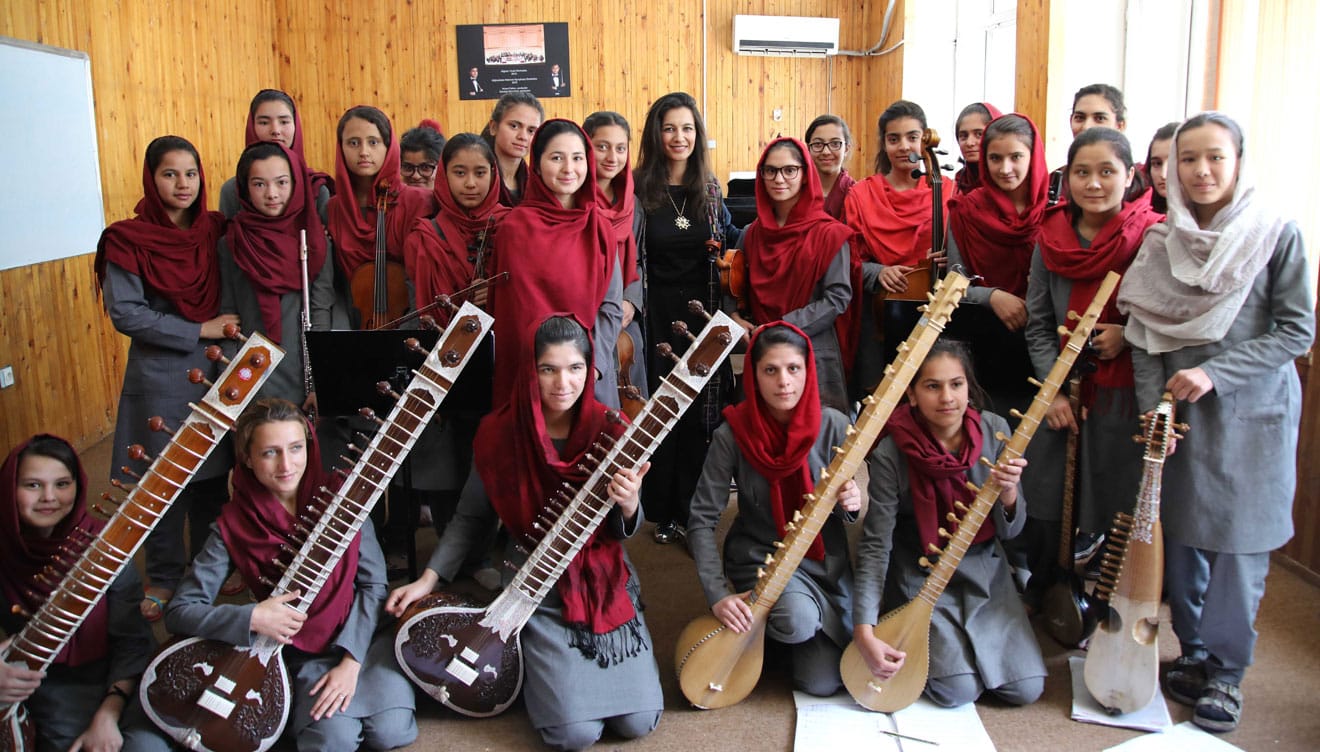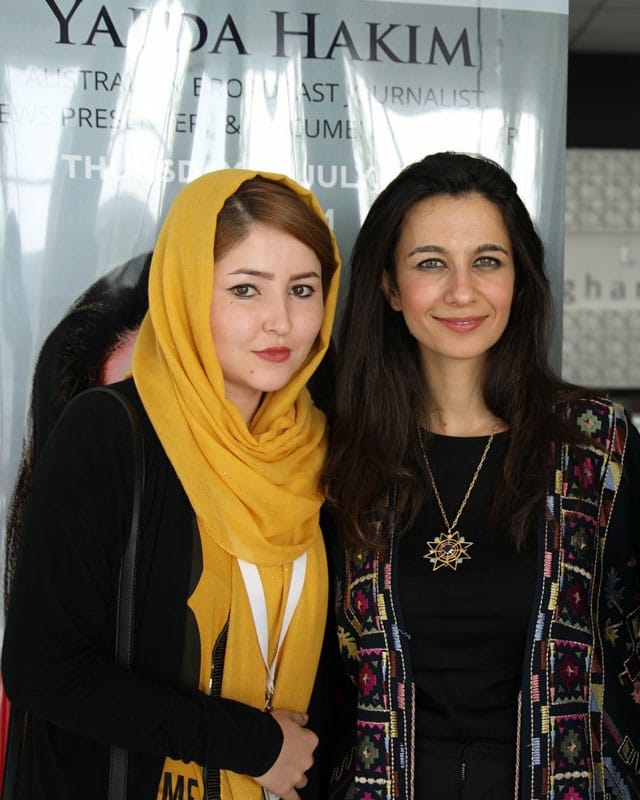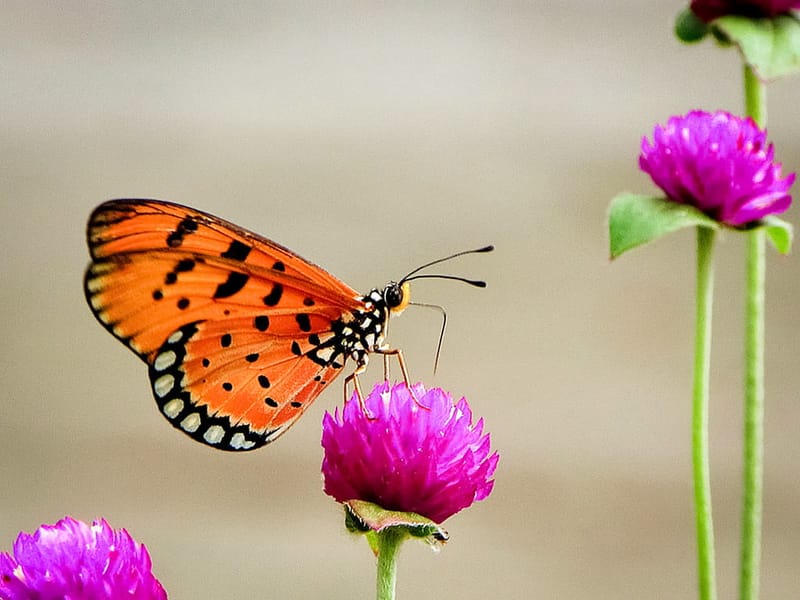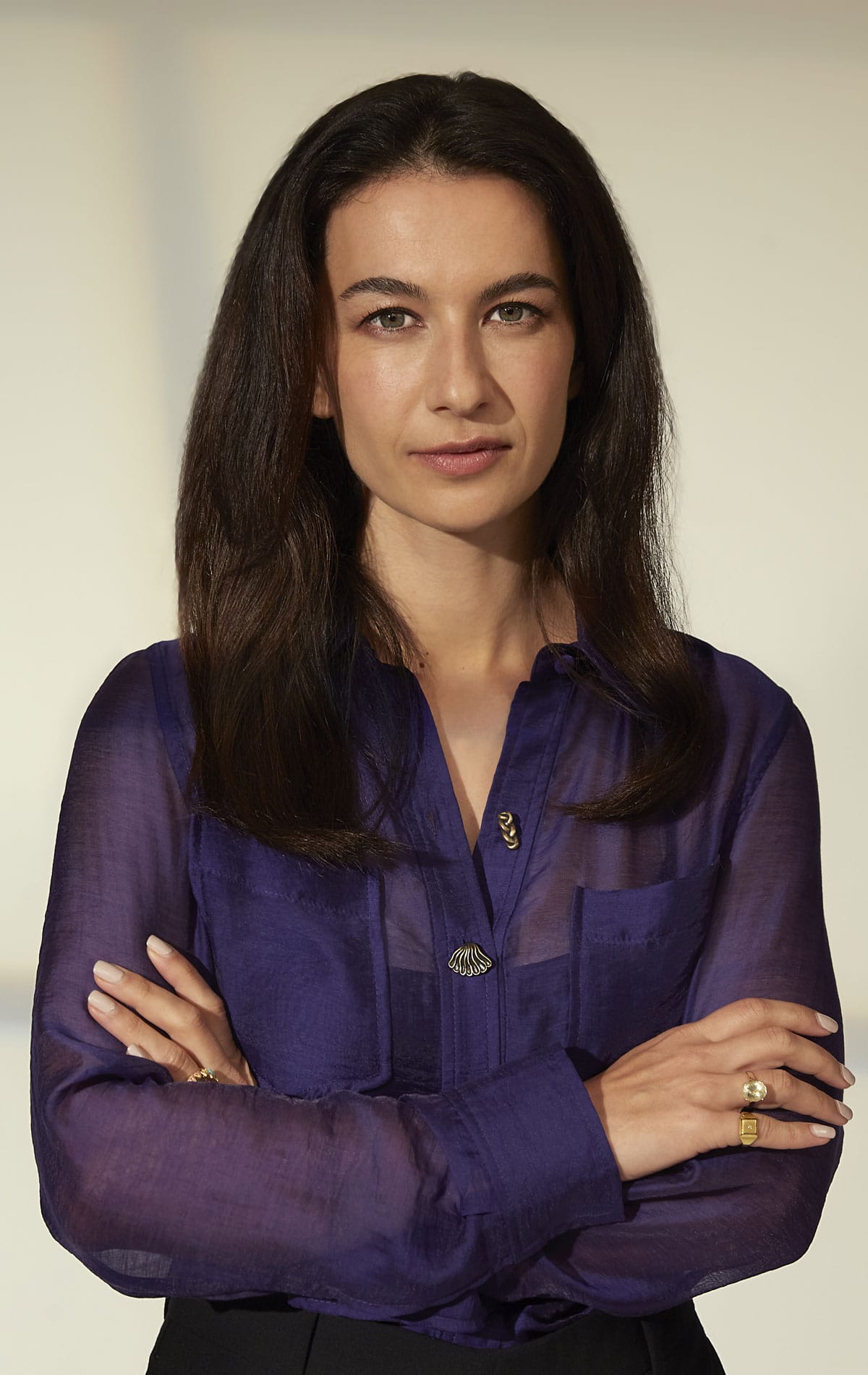
Yalda Hakim was just six months old when her family fled Afghanistan for Pakistan during the Soviet-Afghan War. For 10 days they travelled overland, Hakim and her mother on one horse, her older brother and sister (aged seven and nine) on another, and her father walking ahead.
“My father told my siblings we were on an adventure,” says the award-winning television journalist, 37, from the north London home she shares with her partner and one-year-old son. “He was an architect, and avoiding conscription. My parents knew that if we were captured we would be killed.
“So when I said I was going to Afghanistan, they were very concerned,” says Hakim, who’s reported from across the world for Dateline and SBS World News in Australia and, for the past seven years, for BBC World News, presenting the flagship program Impact, and producing documentaries for the Our World series. Her reports feature on the BBC News Channel and BBC Two’s Newsnight.
“They didn’t understand why I’d want to return to the country we’d escaped in search of a better life.”
Today, the multilingual Hakim is a star in her birthplace, which she revisited in 2008 to film a report on the damaged capital of Kabul, reuniting with her paternal grandparents in the process. In 2013, she interviewed Hamid Karzai, then President of Afghanistan. Her Yalda Hakim Foundation partners with the American University of Afghanistan to support the advancement of exceptional, often disadvantaged, young women in Afghanistan.
“That first trip was very difficult for me, but it was the beginning of a 12-year reporting relationship that continues to this day,” says Hakim, whose easy warmth and palpable sense of responsibility towards the Afghan people has won her the moniker ‘Daughter of the nation’.
“Now when I arrive, I’m picked up on the tarmac, and whisked away.”
Taliban takes Kabul: Fears for Afghan women and their freedoms
Many women in Afghanistan fear the return of the Taliban – those who have championed women’s rights and have stood up for gender equality are now afraid for their lives, and for their families.
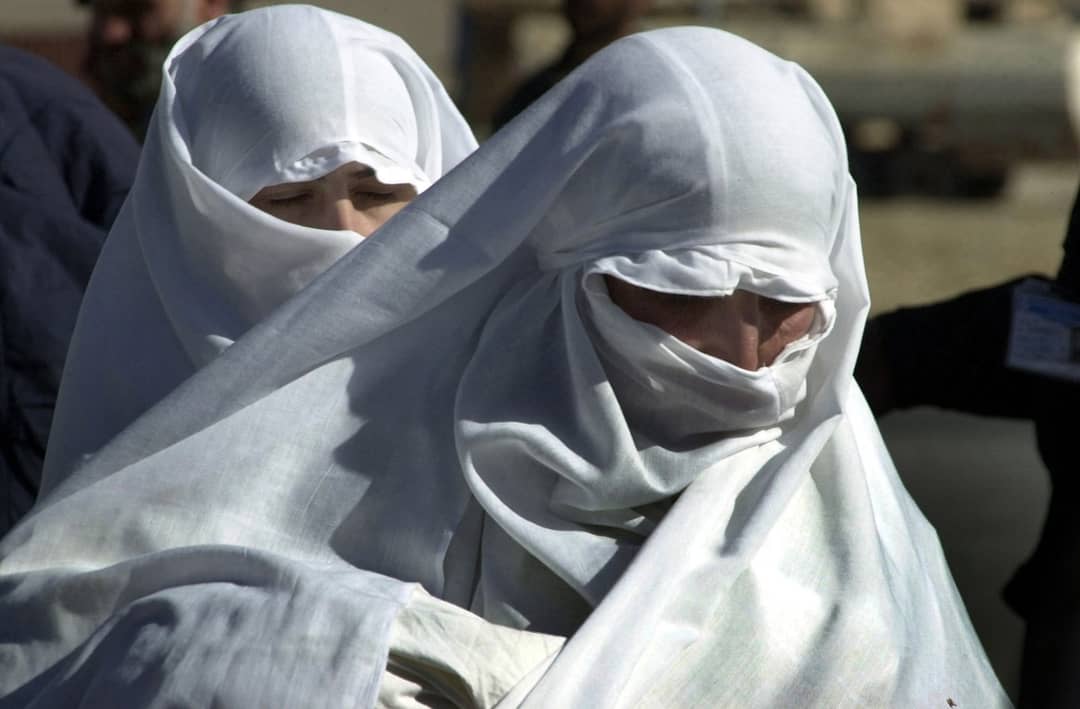
Australian connection
The Hakims spent two years in Pakistan before being sponsored by architect Syed Sibtain and his journalist wife (and Sydney Morning Herald crossword compiler) Nancy, to settle in Australia in 1986. All of Hakim’s siblings, including a younger sister, have since carved successful careers.
But it’s Hakim whose profile is highest, with accolades including the United Nations Media Peace Prize, and reporting everywhere from Yemen and Libya to northern Iraq and, earlier this year, northeast Syria – a long deployment that saw her donate her expressed breast milk to Syrian refugees.
“My parents instilled [in us] a belief that there are no limits, that we could succeed in whatever field we chose,” she says. “While global politics and issues of social justice were always discussed in my family home, it was Nancy’s stories about Fleet Street and the BBC that influenced my decision to become a journalist. As a kid, I would watch current affairs stories and think, ‘That will be me one day’.”
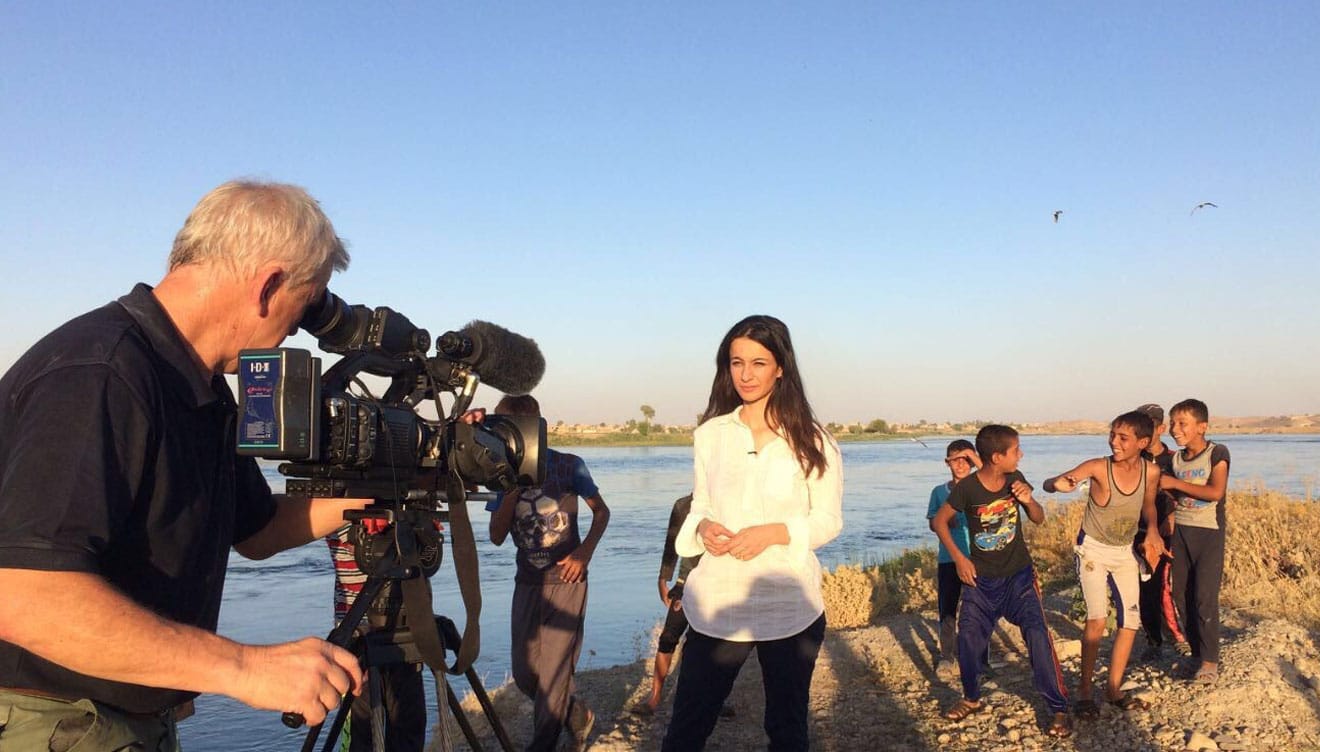
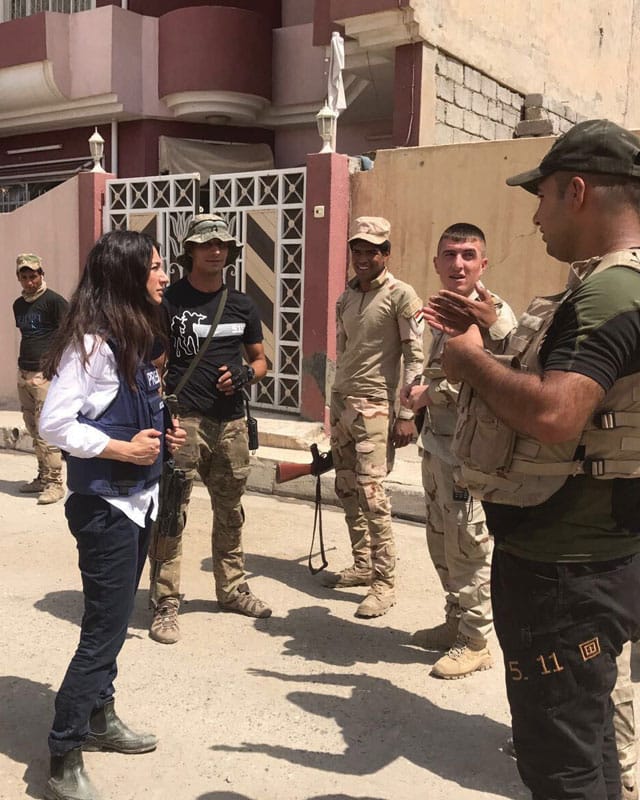
Hakim smiles. “I’m a product of Australia and the opportunities I’ve received. And that includes my long-distance studies at Monash.”
Hakim attended Macarthur Girls High School before enrolling in arts at Macquarie University, then swapping to a diploma in journalism at Sydney’s Macleay College, a hands-on course that involved a trainee placement at SBS.
“I got a nightshift job logging the day’s news, then a dayshift job finding archive footage. In my spare time I wrote mock scripts, learned how to edit videos, amassed a body of work,” she says. “When I was finally offered a cadetship, a requirement was that I finish my degree. I chose to major in journalism at Monash because of the flexibility it was offering.
Living Black
“I was travelling on my own to remote regions in Australia for the Indigenous current affairs program Living Black. I would finish filming, then write my essay on my laptop. When I was reporting from Jakarta and Delhi, I did my exams at their Australian embassies. The lecturers had my back the whole way.”
Hakim has long inspired confidence. Approachable, empathetic, driven and whip-smart (she speaks English, Farsi, Urdu, Pashto, Dari, and is learning Mandarin), she’s committed to using her global platform to highlight the stories of people living through extreme difficulty in countries ravaged by poverty and war.
“One of the challenges I face in my job is developing these very personal relationships over weeks with people who’ve allowed our cameras into their homes and lives. To then learn what happens to them after I’ve long gone, because I have an Australian passport, can really hit home,” she says.
“Telling the stories of the struggles people go through keeps it real for me. I have an added responsibility now,” she says of her son, to whom she wrote a letter from Syria, explaining why she left him behind. “But I still feel that what I do is incredibly important. So as long as I’m allowed, I will continue to do it.”
